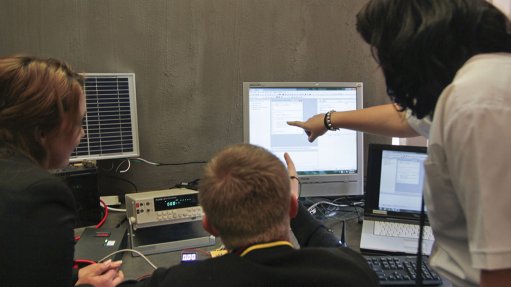
Belgium Campus this week signed a memorandum of understanding (MoU) with three higher education technology institutions to localise skills.
The multilateral agreement between the University of Venda, Cape Peninsula University of Technology, Limburg Catholic University College and Belgium Campus would see information and communication technology (ICT) skills being developed in outlying regions to boost local communities.
The MoU aims to promote the upskilling of potential students at the respective university communities and ensure that the skills obtained remained in the area to further ensure that the outlying region is developed.
The agreement also cemented the mutual and ongoing cooperation of Belgian and South African universities.
The Belgian tertiary educational institution, established in 1999, currently hosted about 530 students – almost half of whom were company- and Belgium government-sponsored bursary and sponsorship students – specialising in information technology.
The campus, which was currently awaiting accreditation to offer a Masters in ICT innovation, offered a fully accredited Diploma in Information Technology and a Bachelors Degree of Computing, and was the only institution in South Africa with qualifications benchmarked against the accreditation protocol of the Dutch Flemish Accreditation Organisation.
The qualifications were constantly streamlined to meet industry requirements and align with South Africa’s growing economy and its opportunities for the future, which was remarkably different than what the schools and universities were producing, said founder and chairperson Jan Rombouts.
The past ten years had seen a significant decline in the quality of the students presented to the world after matriculating.
“The reality is that there is a high demand for a small group of individuals with the right skills sets, while a much larger group of young people languish in the despair of unemployment because their skills and the demands of the industry and regional economies are misaligned,” he said.
Belgium Campus, which delivered 10% of all ICT graduates in South Africa, boasted a 100% employment rate for its graduates – locally and internationally. The ‘ITversity’ currently had an 80% graduation rate.
The ITversity previously reported that there were 829 000 vacant jobs for highly skilled workers across a range of occupations in South Africa.
But South Africa faced a shortage in quality IT skills, particularly as, of the one-million grade 10 learners in 2010, only 461 060 obtained their National Senior Certificate, 165 957 received university endorsement and a significantly lower number actually enrolled for any form of higher education in 2013.
Of those that did enrol in public universities, only 15% to 20% would actually graduate.
“This means that South Africa will not be able to fill the skills shortage gap for a number of years, with serious repercussions for the country’s economic growth.”